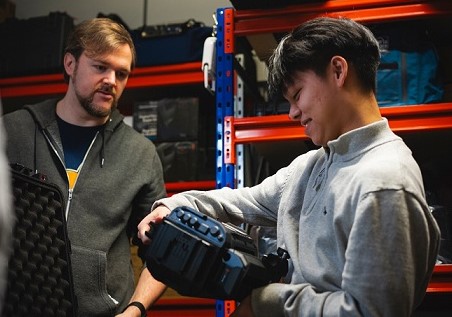A wave of climate protest is sweeping the planet, and those of us working in tourism would do well to reflect quickly on how it will impact our industry, and what we should do.
Children across the world skiped school to protest at us adults’ inability to ensure them a liveable future. We don’t know how many exactly took to the streets for sure, but in total it may well have been in the 100,000s. The website FridaysForFuture lists the number of countries where actions were announced – over 1209 actions, in 92 countries.
Whatever the total turn out, the scale that the movement continues to grow at is phenomenal. It only began last August, when one 15-year old girl, Greta Thunberg, sat by herself on the footsteps of the Swedish Parliament. She has continued to do this every Friday since, with more and more children – and adults – joining her both there and elsewhere around the world.
So what should those working in tourism do? There has never been a better time to get priorities straight.
Last month several prominent scientists and academics – including the climatologist Kevin Anderson, who was keynote speaker at World Responsible Tourism Day in 2015, and Sir Tim Smit, Co-Founder of the Eden Project, signed an open letter “in solidarity with the children going on school climate strike”.
As Professor Anderson wrote on Twitter; “In just a few months a new global constituency has emerged, whose voices are loud and demands cogent. It’s up to the rest of us to listen to, engage with and then act for & with them. We owe them thanks for saying what most of us know, but have been too afraid to acknowledge.”
Children want the chance to enjoy the world in ways we have long taken for granted and built the world’s largest industry upon. Speak with (and more importantly listen to) them at home, or maybe share this post or add comments on your social media. Wherever our children are talking together – let them know that we will work with them and for them to try to ensure that future. Ask them what they want us to do.
Remember how scared you were of nuclear war when first you heard of the possibility. Imagine being a child, and learning about climate change. Nuclear War would only have happened if someone did something stupid. Climate Breakdown only doesn’t happen if we all stop.
Second, there need not see this strike in exclusion, but as part of the ‘new global constituency’ that Anderson refers to. In Amsterdam, over 40,000 people marched people marched to protest climate collapse. There’s much more to come. The Children’s Climate Strike will be followed by a global ‘week of action’ by the Extinction Rebellion, a loose – and also rapidly growing – collective of people across the world using direct action to disrupt daily life and urge governments to “reduce carbon emissions to net zero by 2025.”
On March 11, legal proceedings against Heathrow’s Third Runway opened in the High Court in London. Since, research by London School of Economics’ Grantham Research Institute into the corporate disclosures of 20 of the world’s largest listed airlines found that their long-term targets appear to fall short of the Paris Agreement goal of limiting global warming to below 2°C.
According to the new research – backed by over $13 trillion of investors such as BNP Paribas and Legal & General Investment Management: ‘None of the 20 airlines has a target that clearly specifies how it will reduce its own flight emissions after 2025.’
Last year the horizon was brought much closer, with the UN IPCC report stating that we had 12 (now 11) years to radically decarbonise our entire economy. What these strikes, protests, rebellions, court cases and other urgent actions should make clear is that we can’t wait a decade – we need to make the changes now. If I want to be 10kg lighter in 12 months, it’s best not to put off starting my diet for 11.
As individuals, as companies, as destinations, there needs to be commitment to a path of removing carbon from our core operations so that at the very least we are adding no more CO2 to the atmosphere by 2030, and ideally we are drawing it back down into the trees, plants and soil where it belongs. Plot your path from now until then. And realise then that the quicker we go, the cheaper and more effective it will be in the long run.
It’s going to be very difficult, especially for aviation – so we will need to work together. As Andrew Simms, Coordinator of the Rapid Transition Alliance and another signatory to the open letter I mentioned above wrote last week: “The question of whether something is ‘ecologically workable’ needs to dethrone questions of whether something is economically or ‘politically workable’.” Like the children, we all need to get our priorities straight.
If you start now, you stand a chance. Children might get to enjoy their holidays in 2050. Now there’s a long term goal worth striving for.
















